
Made with gluten-free chickpea flour, these chickpea crackers are a tasty and healthy alternative to classic wheat crackers.
In as little as 30 minutes, you can prepare homemade gluten-free crackers that are also vegan and incredibly healthy, high in fibre and protein.
The recipe for chickpea crackers requires just a few simple ingredients: gram flour, extra virgin olive oil, water, and salt.
Also called besan flour, gram flour is a gluten-free flour made from ground chickpeas and it lends a nutty, beany, and savoury taste to flourless crackers.
Chickpea crackers are a delicious, crunchy nibble that’s perfect as a healthy snack, either on their own or with dips and spreads. Our FAQs have lots of serving ideas!
Frequently Asked Questions
Are chickpea crackers gluten-free?
Yes, crackers made with gram flour are gluten-free, as chickpea flour has no gluten.
Using chickpea flour for crackers is an excellent way to prepare flourless, grain-free crackers if you’re celiac, gluten-sensitive, or avoiding gluten for gut health and better digestion.
Are chickpea crackers healthy?
One 30-gram (1 oz) serving of chickpea crackers has 180 calories, 7 grams of proteins, and 2 grams of fibre, making it a healthy snack.
Homemade crackers with chickpea flour are a healthier substitute for wheat crackers as they have:
-
Fewer carbs
-
More fibres
-
More proteins
So, chickpea crackers have fewer calories, don’t spike blood sugars (lower GI), and are more filling than wheat crackers.
This means crackers made with gram flour help you cut calories without changing portion size, helping with weight loss.
Which chickpea flour is best for crackers: garbanzo flour or gram flour?
We recommend using superfine gram flour (also called besan flour) to make chickpea crackers for optimal crispiness.
If you’re using garbanzo flour (like Bob’s Red Mill chickpea flour) to make crackers you may need to use more water to get the same dough consistency.
Garbanzo flour and gram flour are both chickpea flours but are made from different types of chickpeas.
Gram flour is made from ground split brown chickpeas (desi chickpeas/chana dal), while garbanzo flour is made from ground whole white chickpeas (kabuli chickpeas).
They taste very similar, but gram flour is finer and denser than garbanzo flour, which, by being slightly coarser and fluffier, requires more water when used in recipes.
How do I keep homemade crackers crispy?
Homemade crackers will stay perfectly crispy for a few hours once baked. After that, they’ll start to lose their crunch if not properly stored.
To keep these chickpea crackers fresh for up to a week, follow these 4 simple tips:
-
Leave the crackers to cool completely on a rack to prevent steam from moistening them.
-
Once cooled, immediately transfer into a glass jar or tin box, ideally with an air-tight seal, or tightly wrap in foil.
-
Don’t use plastic bags or containers, as plastic makes homemade crackers chewy and soggy.
-
Store at room temperature in a cool, dry, dark place, like a cupboard.
What can I serve chickpea crackers with?
Chickpea crackers are the perfect hummus crackers! We also love them dipped in our baba ganoush without tahini.
You can enjoy chickpea crackers with other tasty toppings and dips like:
Ingredients
| Fine Gram Flour (chickpea flour) | 180 g |
| Dried Thyme | 2 tsp |
| Salt | 1 tsp |
| Extra Virgin Olive Oil | 65 mL |
| Water | 65 mL |
Step 1
Preheat the oven to 150°C (300°F) static and keep a large baking tray in the oven.
In a bowl, mix the gram flour with salt and thyme, then add the olive oil (1).
Using your fingertips, rub the oil into the chickpea flour until you have crumbly dough (2).
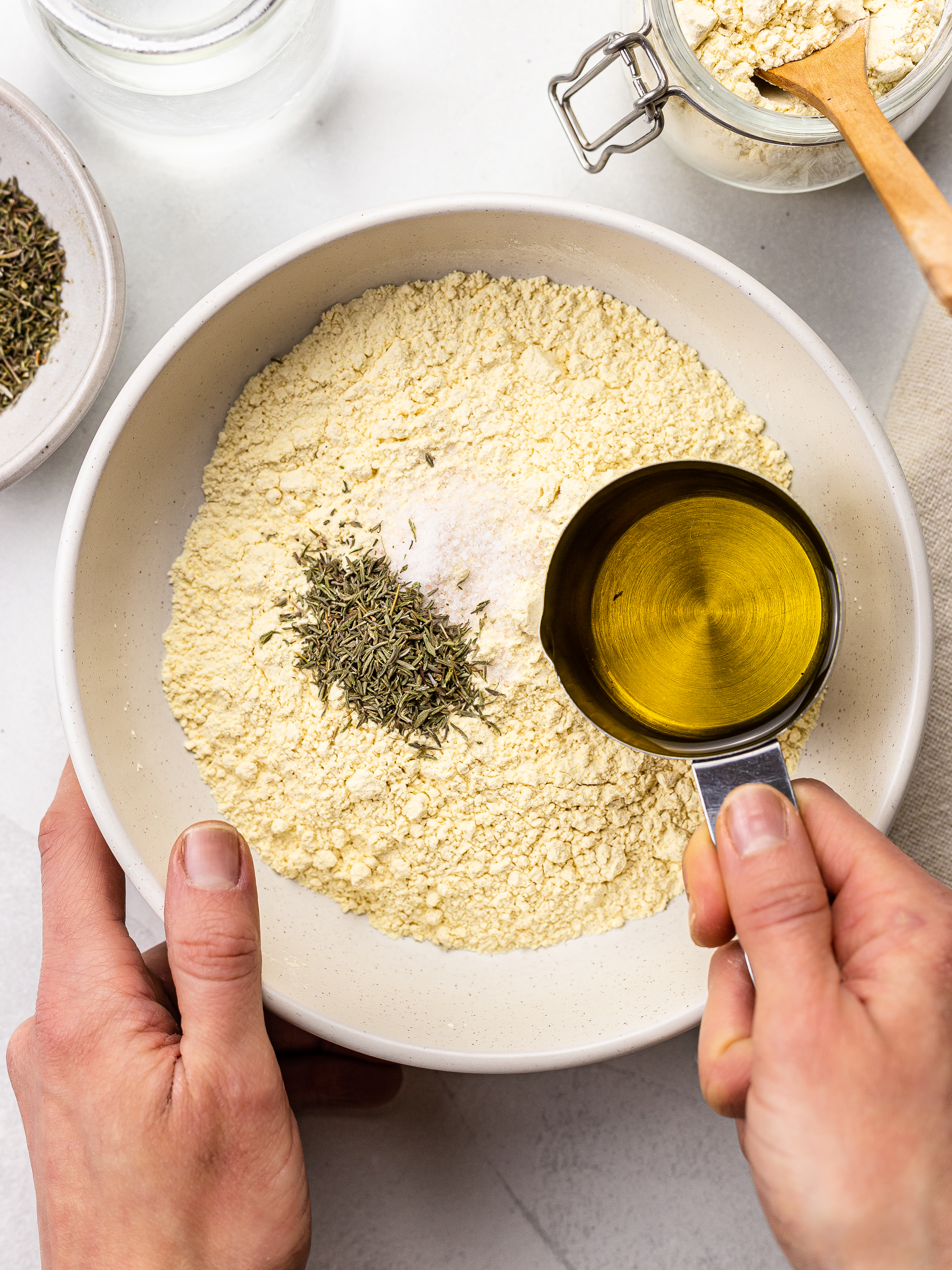
1
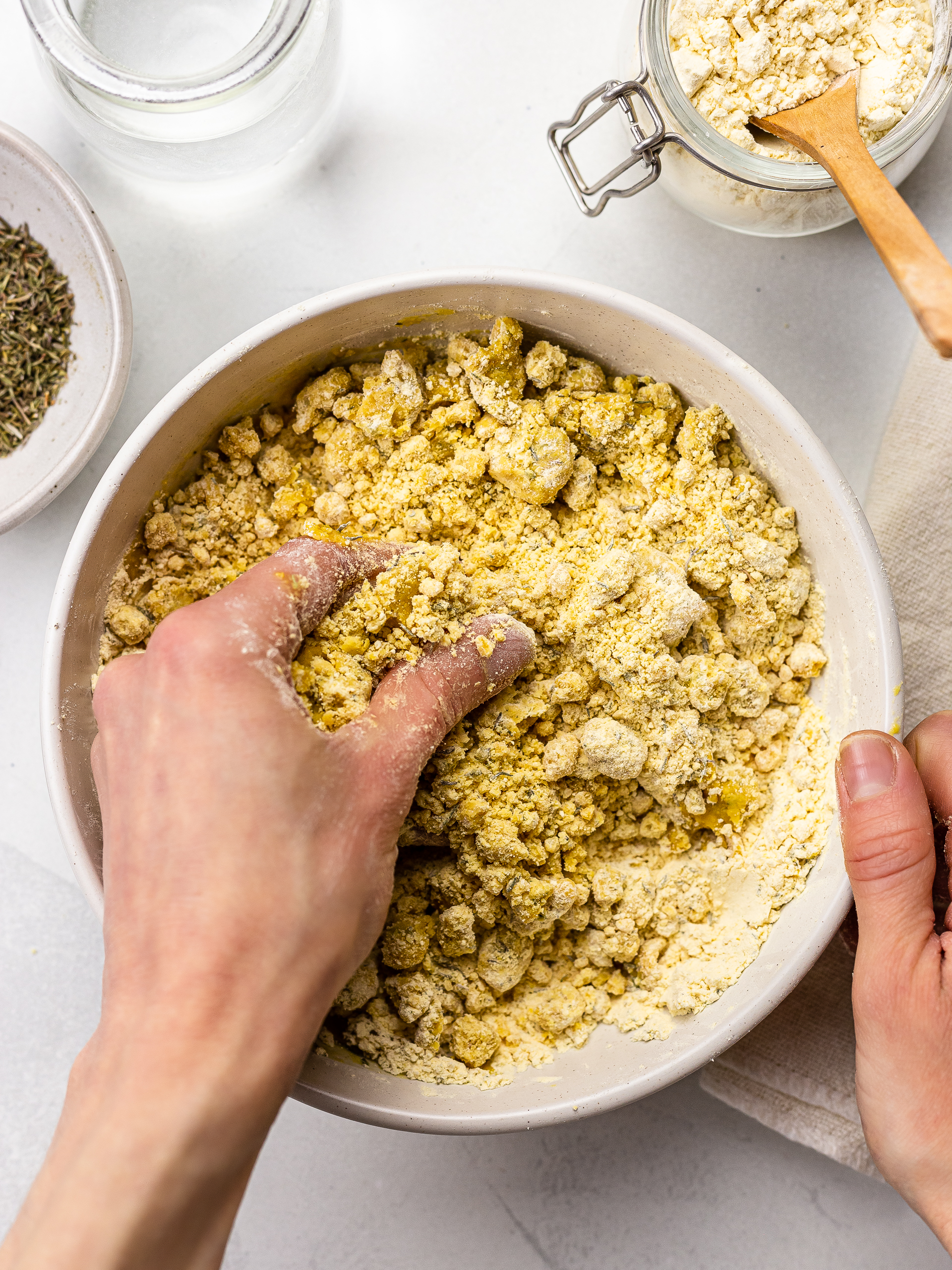
2
Step 2
Now, pour in the water, starting with half of the amount and gradually increasing (1) while you knead the ingredients into a compact and pliable dough (2).
Depending on how fine or coarse your chickpea flour is, you may need more or less water.
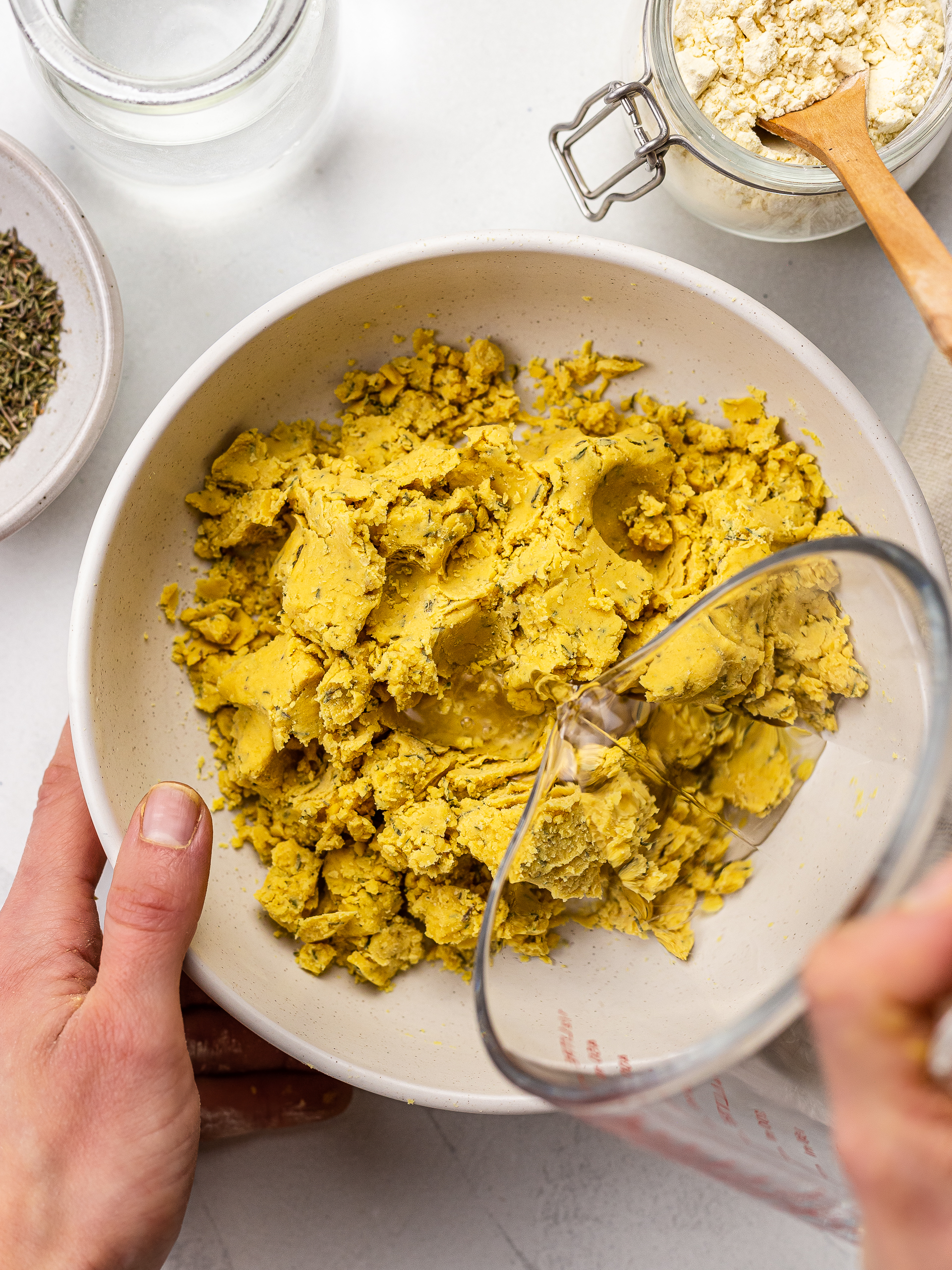
1
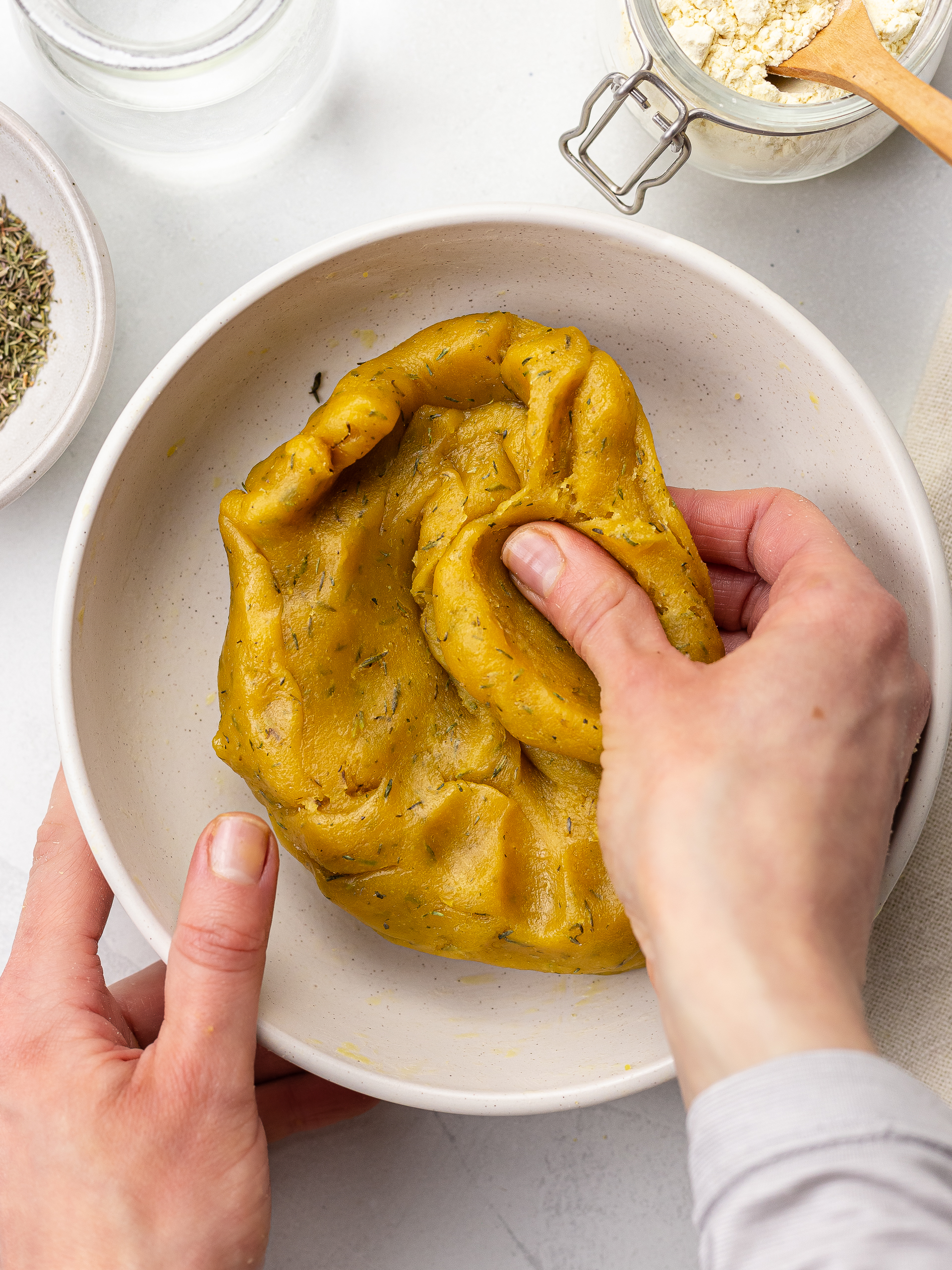
2
Step 3
Using a rolling pin, roll out the chickpea cracker dough between two sheets of baking paper to a 2 mm thickness.
The thinner the dough slab is, the crispier the crackers will be.
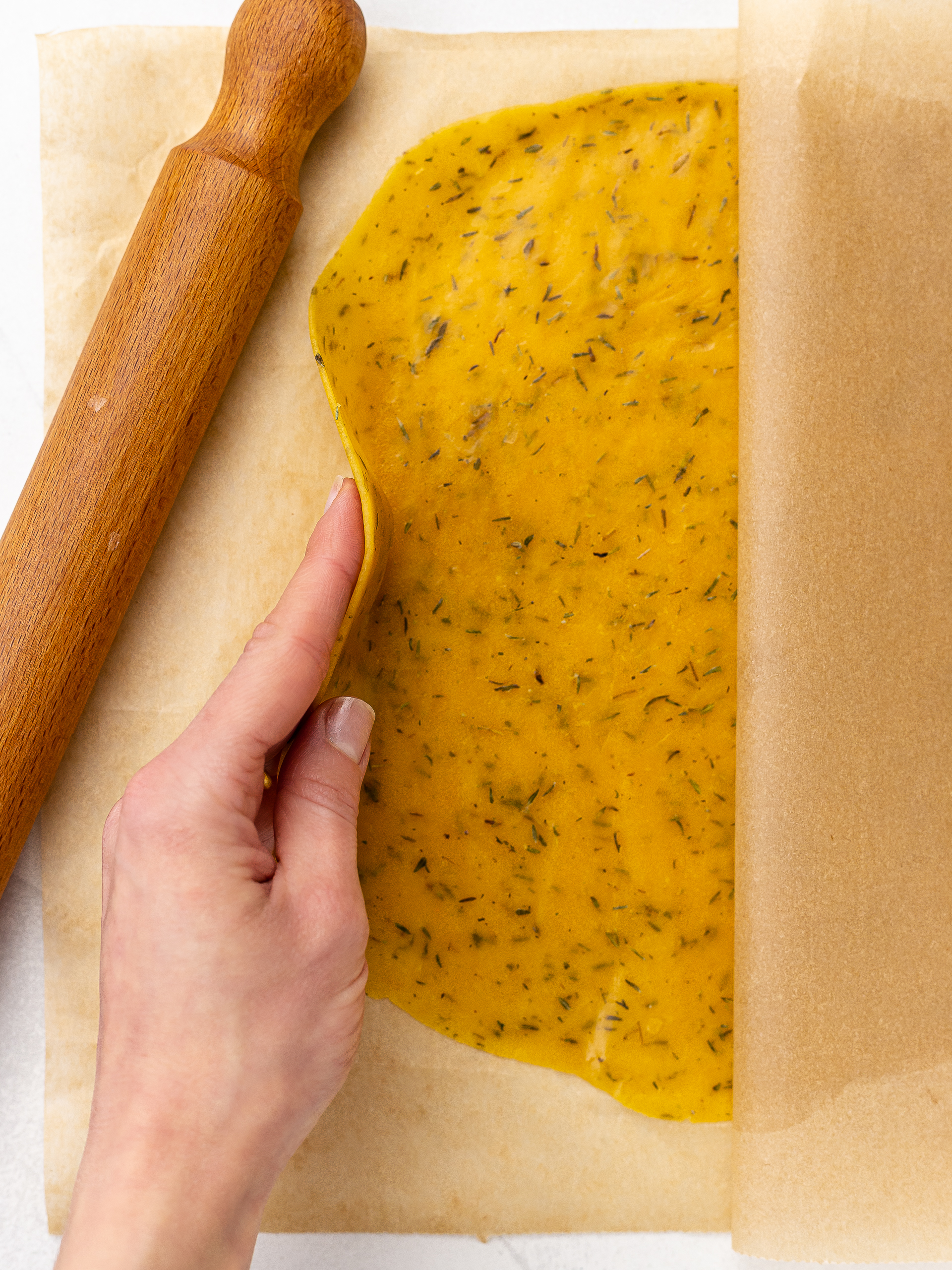
Step 4
Use a long knife or a wheel cutter to mark the outline of the crackers (1).
Then, gently poke the dough with the tines of a fork — this allows any steam to escape while baking (2).
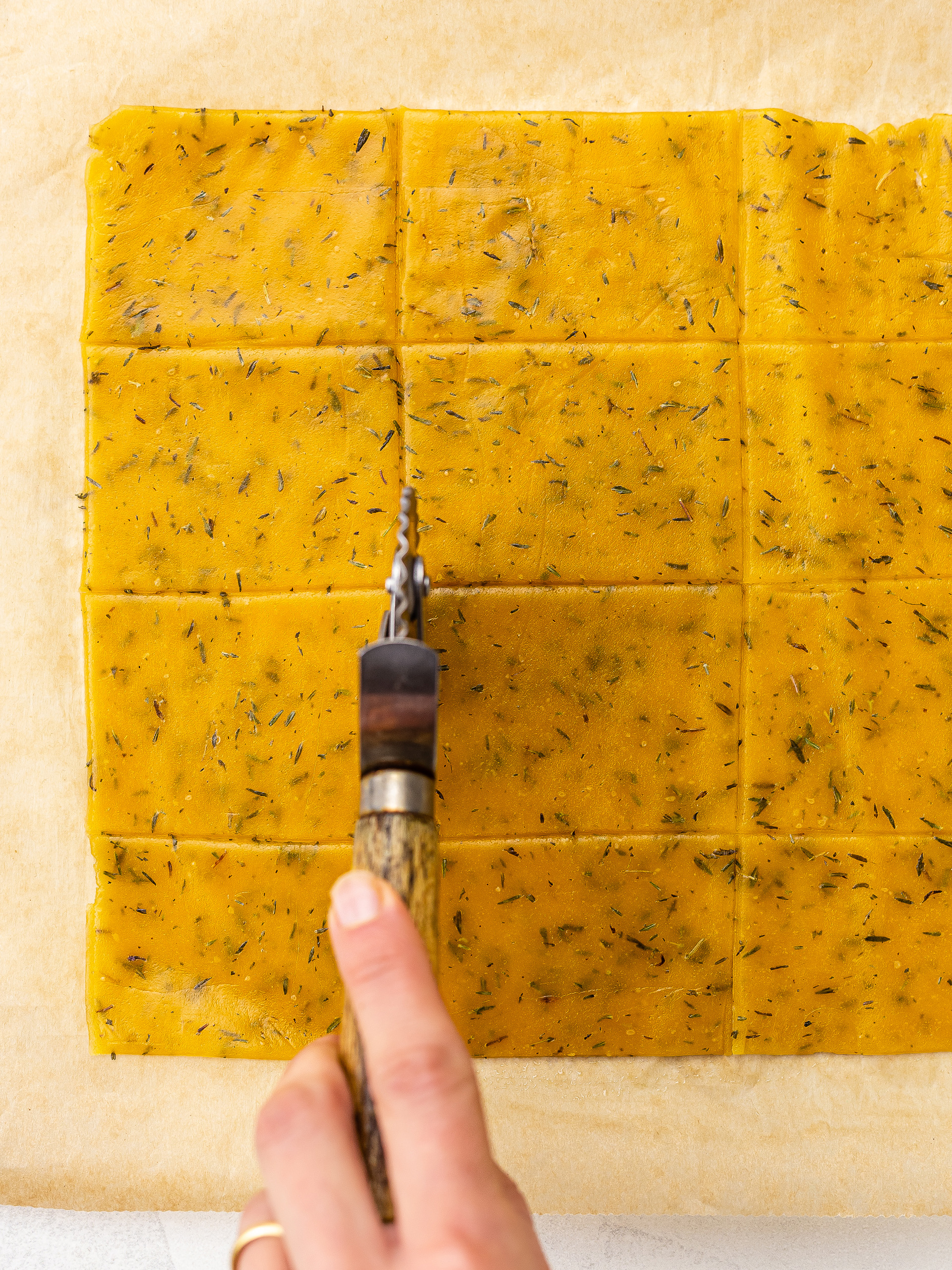
1
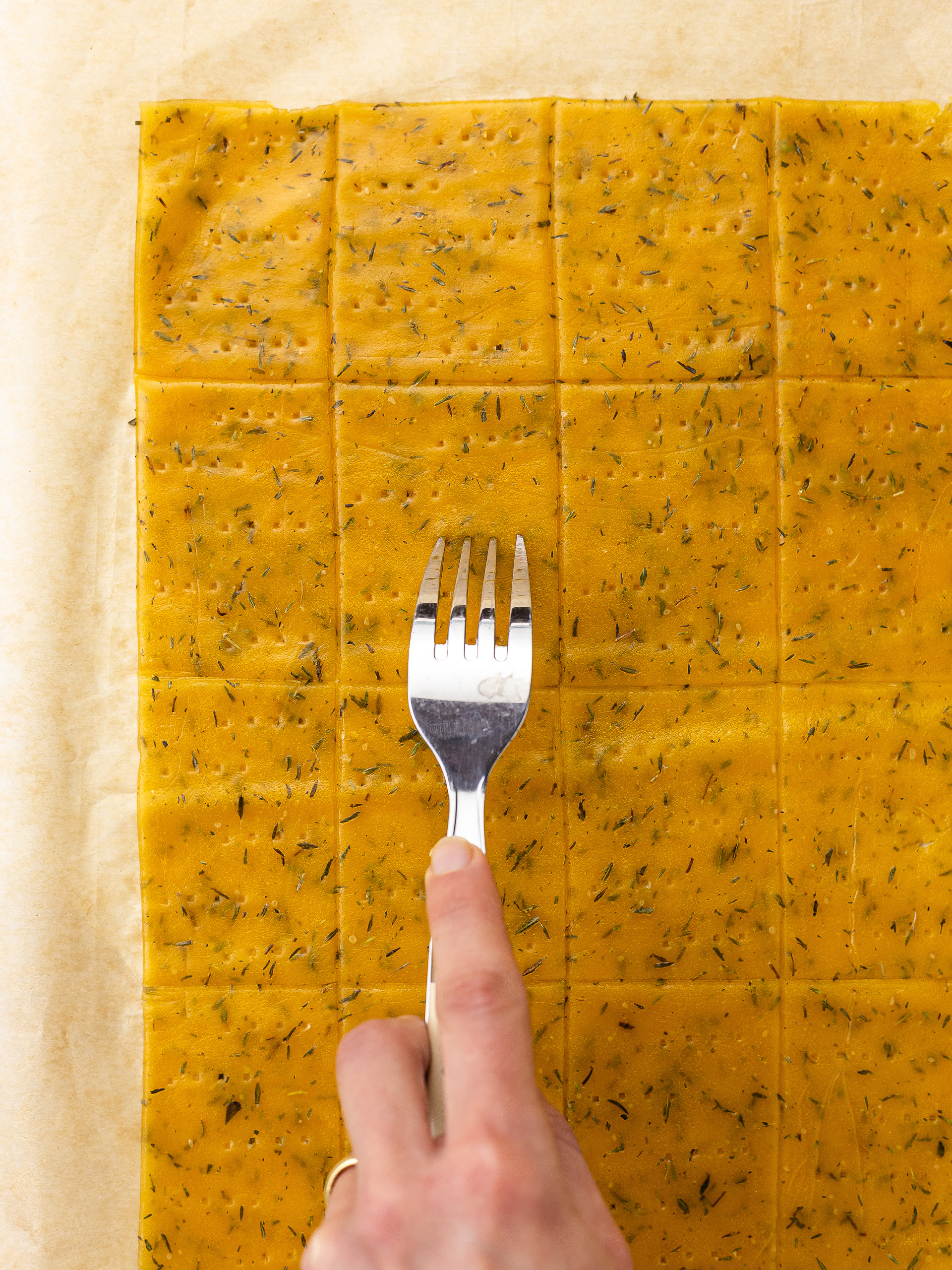
2
Step 5
Transfer the chickpea cracker slab to the hot baking tray and bake for 18-20 minutes, rotating the tray halfway through cooking time to ensure even cooking.
The chickpea crackers are ready when the top is firm and the edges are golden; they should be crunchy and sound hollow when tapped.
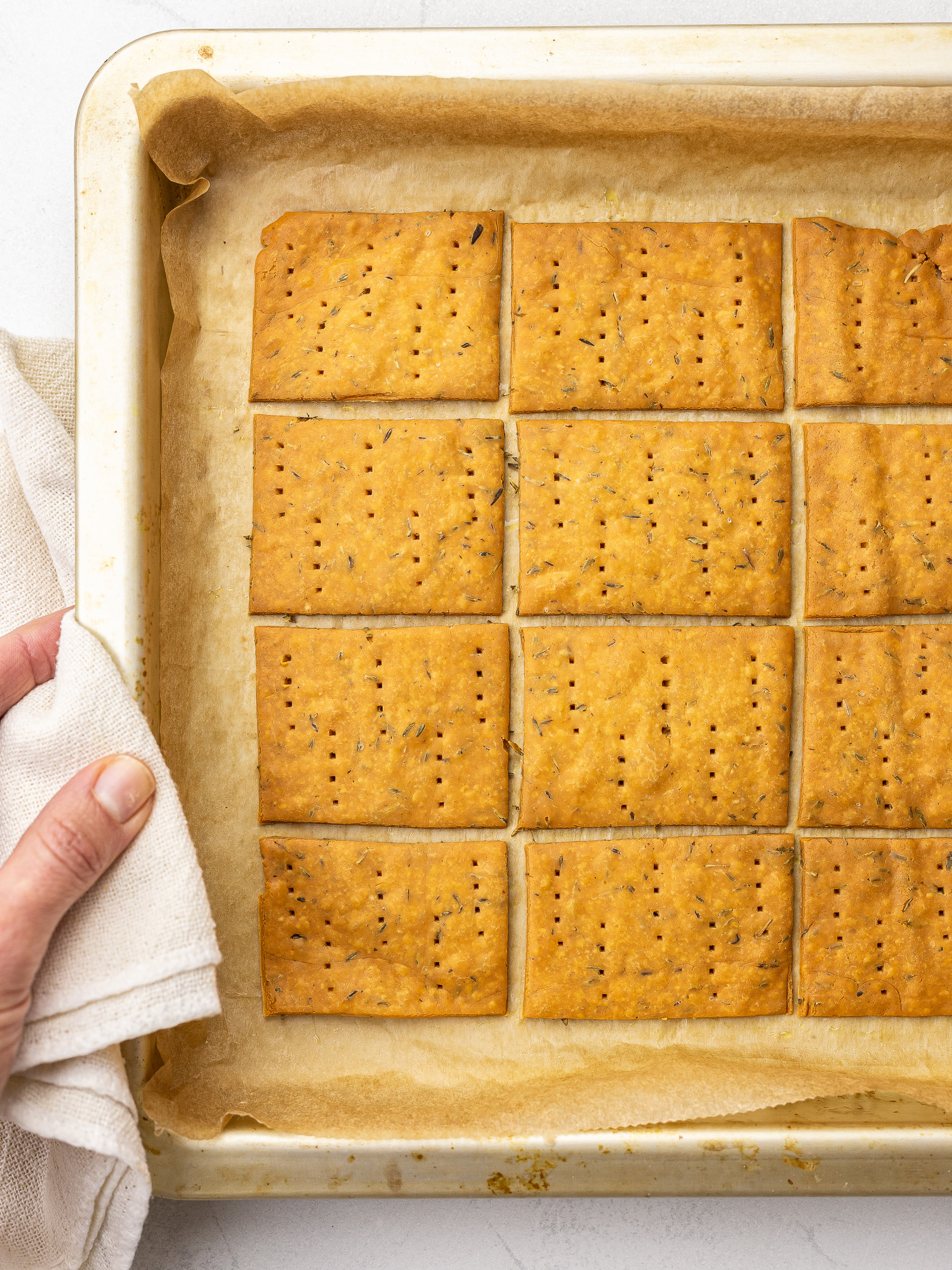
Step 6
Transfer the baked crackers onto a wire rack, leaving them to cool down completely and crisp up.
Your homemade gluten-free chickpea crackers are ready.
The crackers keep well for 5 days if stored in a glass container or jar or if tightly wrapped in foil — plastic makes them lose their crispiness.
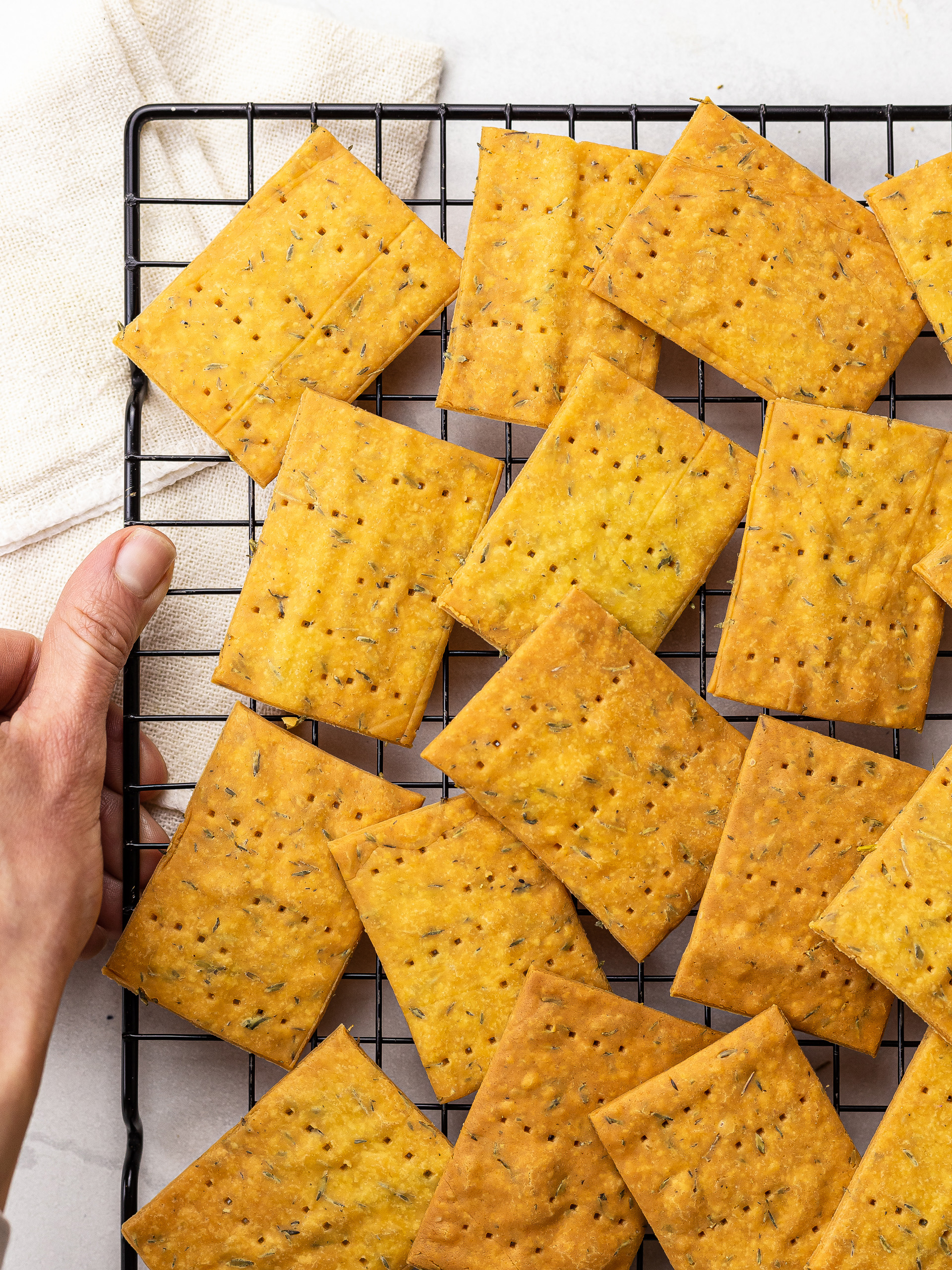
Tips
-
We made our gram flour crackers 7 x 5 cm (3 x 2 in), but you can make them larger or smaller, square, round or diamond-shaped if preferred.
-
If you’re cooking the chickpea cracker slabs on two trays, use fan mode in the oven and rotate the trays top to bottom and front to back halfway through baking time for even cooking.
Add-Ons
For a tasty twist and extra flavour, you can add:
-
Seeds like sesame, hemp, poppy, chia, or pumpkin seeds as in this seeded spelt crackers recipe.
-
Grated mature cheddar, parmesan, or plant-based nutritional yeast for a cheesy finish.
-
Spicy dijon or wholegrain mustard as in these mustard crackers.
-
Herbs & spices — try Cajun spice mix, garam masala, Lebanese 7 spice, Za’atar seasoning, curry powder or aromatic fennel seeds like in these sourdough fennel crackers.
Swaps
You can replace one-third to half of the chickpea flour with other gluten-free flours like:
Discover more from reviewer4you.com
Subscribe to get the latest posts to your email.





